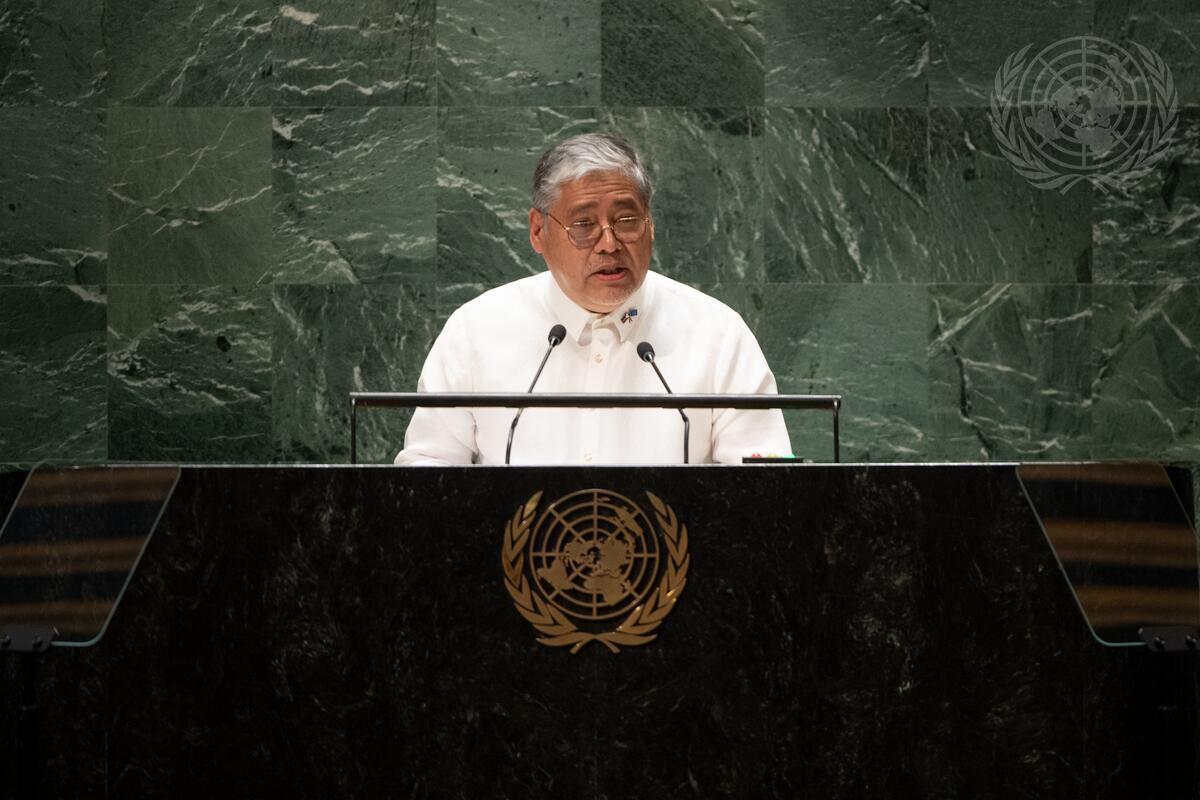Philippines: Upholding int'l law to keep Indo-Pacific free, open

Adherence to international law will help keep the Indo-Pacific region ''free and open,'' the Philippines told the United Nations on Saturday (early Sunday morning in Manila) as it reiterated its call for amicable resolution of disputes in the South China Sea.
Speaking at the 78th session of the UN General Assembly in New York City, Foreign Affairs Secretary Enrique Manalo said the ''preservation of a rules-based global order is our collective responsibility.''
''Its present and future rest on the predictability and stability of international law, which safeguards the rights of all states. If multilateralism must endure, all states must adhere to the rule of law,'' he said.
Manalo said the Philippines is working with other countries to promote a rules-based international order.
''We advocate the peaceful settlement of disputes in accordance with international law. This has always been our position with respect to the disputes in the West Philippine Sea, inasmuch as we are prepared to defend our sovereignty, sovereign rights, and territorial integrity,'' he added.
China claims the South China Sea nearly in its entirety, but the Permanent Court of Arbitration in The Hague invalidated this claim in July 2016 following a case filed by the Philippines in 2013.
However, the tribunal has no enforcement power as China has repeatedly ignored the ruling.
At the UN, Manalo insisted that the arbitral award ''is now part of international law.''
''Adherence to international law contributes to keeping the Indo-Pacific, with the ASEAN at the center, free and open, stable and peaceful.''
Manalo also said the Philippines is working with partners for rules to govern lethal autonomous weapons systems.
''We advocate the peaceful uses of outer space, the elaboration of the principle of due regard in the space domain, and greater responsibility among states to reduce space threats, including debris from rocket launches,'' he said.
''We call for UN partnerships that would guarantee that new technologies are not weaponized or misused in any way to subvert democracy and freedom, to challenge international humanitarian law, and to exploit the vulnerable and violate human rights and human dignity,'' he added.
Climate action, human rights, sustainable development
On climate change, the Philippines underscored the need for ''decisive, responsible, just, and sustainable solutions that look after populations and protect persons that have contributed the least to global warming but have the highest vulnerability [due to] their geography.''
The Philippines also joined the call for industrialized countries to abide by their obligations to mitigate the impacts of climate change under mechanisms such as the Paris Agreement.
''We thank Vanuatu and the core group of states for rallying the UN to bring the question of state obligations relating to climate change to the ICJ (International Court of Justice). The Philippines will actively participate in the proceedings,'' he said.
On achieving sustainable development, Manalo said the Philippines supports ''initiatives to make international financial and development mechanisms more attuned to the needs of middle-income countries.''
The Philippines also supports the Contingency Fund for Emergencies, the COVAX Facility, and other mechanisms that harness the power of partnerships to address persistent health challenges and emergencies, he said.
Manalo also said that in order ''to foster trust and engagement, dialogue on human rights must be genuine, based on evidence, and depoliticized.''
''When constructive and carried out in good faith and with full respect for the agency of states, collaboration on human rights can achieve concrete impact,'' he said.
''Recognizing human rights as an unfinished business in all parts of the world, we remain a dedicated advocate for the human rights of vulnerable groups, especially women, children, indigenous peoples, migrants, persons with disabilities, refugees, and older persons.''
Meanwhile, Manalo said the Philippines' candidacy for a seat on the UN Security Council for the term 2027–2028 ''manifests our desire to offer the best of the Philippine diplomatic tradition.''
''We count on the support of all UN member states in this regard,'' he said. —with Sherylin Untalan/VBL, GMA Integrated News




